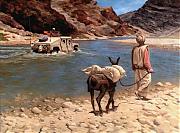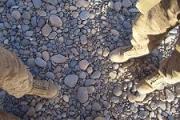Different parts of Iraq have different security environments, and that is important to recognize as Americans assess stories coming out of the country, Pentagon officials said today.
Recent stories about the insurgency in Anbar province paint a very bleak picture of the security situation in western Iraq.
The stories reference a classified Marine assessment of the state of the insurgency in the province. The 1st Marine Expeditionary Force, out of Camp Pendleton, Calif., commands the Multinational Force West, headquartered at Camp Fallujah.
In a written response to the articles, Marine Maj. Gen. Richard Zilmer, commander of Multinational Force West, said the reports “fail to accurately capture the entirety and complexity of the current situation.”
“The classified assessment, which has been referred to in these reports, was intended to focus on the causes of the insurgency,” he said. “It was not intended to address the positive effects coalition and Iraqi forces have achieved on the security environment over the past years.”
Pentagon spokesman Bryan Whitman called the security situation in Iraq uneven. “There are places where it is relative stability, where the military and police working side by side have created conditions that are stable,” he said. “There are some places in Iraq that are much more of a challenge.”
Security is just one part of the equation, Whitman said. Governance, economic conditions, infrastructure reconstruction and the political situation are important factors in Iraq’s progress. “All these factors are interrelated to create an environment in which Iraqis feel they have hope and look towards a brighter future,” he said.
Anbar province, a Sunni-dominated area that runs just east of Fallujah to the Jordanian and Syrian borders, is Iraq’s largest in terms of size but is sparsely populated.
Building up the Iraqi security forces in the province has not worked as well as it has in other parts of Iraq, Marine officials said. This is because the province is so dominated by Sunnis, and tribal leaders wield real power in many areas of the province.
Similarly, building a provincial government also has been tough in the region. “The Iraqi government is working very hard to improve not only the national government, but to make local governments strong and able to meet the needs of the population,” Whitman said.
Zilmer said much security progress has been made in Anbar province, but “for lasting progress to take place, comparably effective advances must be made in the development of governmental and economic institutions at the local, provincial and national levels.
“Only then,” he said, “will the people of Anbar be able to realize their goal of long-term security, prosperity and confidence in their government.”










Bookmarks